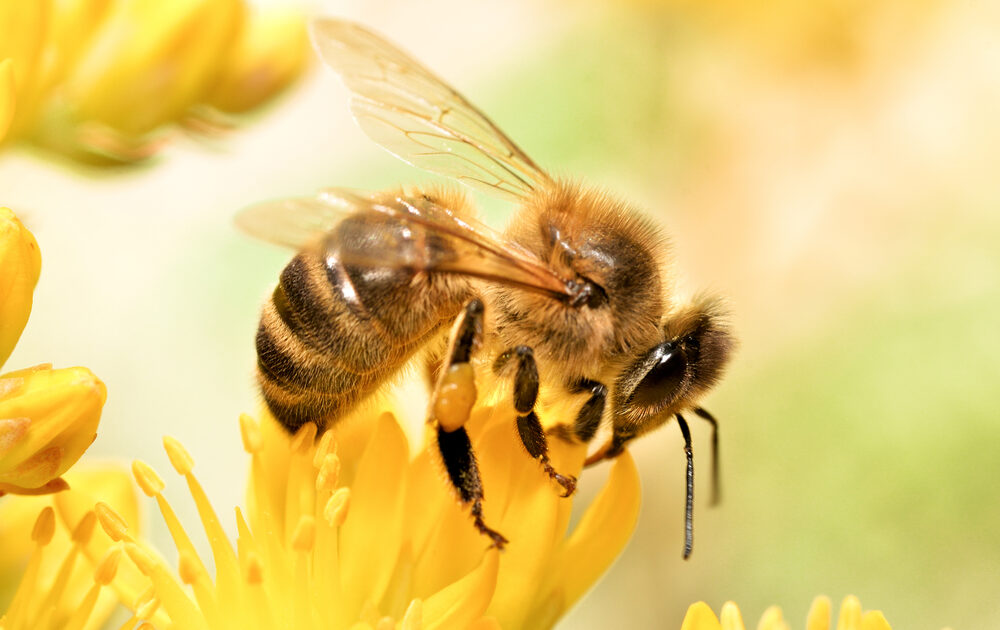Honey Bees Become Addicted to the Pesticides That Are Killing Them, Study Finds

More and more research is showing that honey bees are dying off at least partially as a result of the use of neonicotinoid pesticides. And now a new body of research is showing that these pesticides are linked to a nicotine-like addiction, causing honey bees to become addicted to a substance that is actually killing them.
Two studies, both published in the journal Nature, provide some of the most extensive research yet that honey bees are suffering as a result of the widespread use of neonicotinoid pesticides. One study showed that honey bees preferred sugar solutions that contained two pesticides: imidacloprid and thiamethoxam. The study showed that the solutions may cause a reaction similar to the way humans react to nicotine, becoming addicted to a substance that’s harming them. The bees could not taste the pesticides, but yet they preferred them to the other sugar substance even though it caused them to eat less.
The pesticides, also known as neonics, are a controversial class of pesticides linked to Colony Collapse Disorder (CCD). It’s a phenomenon that beekeepers first started to report in 2006 when 30 to 90 percent of their hives died off. CCD occurs when honey bees abandon the hive for unknown reasons.
The other study showed that bee populations were cut in half around fields where the pesticides were used. Bumblebee populations also stopped growing in hives and they stopped producing queens. The pesticides made the pollinators ill.
“At this point in time it is no longer credible to argue that agricultural use of neonicotinoids does not harm wild bees.” He said the paper was “a major step forwards in clarifying the neonicotinoid debate … This was the first fully field-realistic, well-replicated trial so far, an impressive piece of work,” reported by The Guardian.
States like Maryland are starting to individually act to eliminate the neonicotinoids. The Pollinator Protection Act requires that plants, seeds, or nurseries that stock plants treated with certain pesticides carry a warning label.
Honey bees are responsible for pollinating nearly one-third of foods in the American diet including apples, mangoes, kiwi, plums, peaches, strawberries, okra, cashews, onions, cherries, celery, coffee, and the list goes on and on.
Related on Organic Authority
Honey Bees Getting $3 Million to Get Off HFCS and Eat Better
Honey Bees Get Big Boost from California Almond Growers
First Bees, Now Humans: EU to Restrict Common U.S. Pesticides Linked to Neurological Damag
Image of honey bee closeup via Shuttershock

